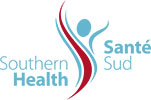Rapid Access to Addiction Medicine (RAAM)
What is a RAAM Clinic and who is it for?
RAAM clinics are walk-in clinics for adults (ages 18+) looking to get help with high-risk substance use and addiction. No referral is needed.
This includes people who want to try medical assistance to reduce or stop their substance use. They may experience frequent intoxication or overdose symptoms, as well as unpleasant withdrawal symptoms when attempting to reduce or stop their substance use. RAAM clinics are also for people who may have substance-related health issues, such as hepatitis, pancreatitis and infections.
RAAM clinics are not for people needing urgent medical attention for serious physical problems or mental health symptoms such as psychosis (paranoia, delusions, hallucinations), agitation; who are at active risk of harm to self or others, or who require police/security involvement.
It can be very difficult to accept that your substance use is problematic, and it’s normal to feel ashamed, frightened, or angry. But the good news is that medical treatment for problematic substance use and addiction is safe and effective. People can and do recover from addiction.
You don’t need an appointment, just show up during clinic hours. If you have a Manitoba Health card or Manitoba Health number, please bring this along.
What happens when I go to a RAAM clinic?
If you’re feeling anxious or hesitant about going to the RAAM clinic, consider bringing a supportive person with you. This may make you feel less overwhelmed and less alone.
The clinic team will complete a health history including questions about your substance use such as:
- when and how you started using
- how much and how frequently you use
- how it may impact your life and responsibilities
The clinic team is there to help you. These questions are to get a complete picture of you in order to determine how to best help you.
Substance use conditions are treatable.
Once the health history is complete, the RAAM clinic team will make treatment recommendations. There are four options:
- Education. The RAAM clinic team will provide you with information on how to make choices that will lower the risks of substance use, such as tips on how to pace your use as well as situations to avoid.
- Counselling. The RAAM clinic team provides brief counseling or may refer you to counselling programs as part of your treatment. Counselling programs can include education on substances and healthy lifestyle choices, group and individual counselling sessions, help with developing coping skills, and connections to support groups. The team will work with you to determine what form of counselling would be most helpful for you.
- Medications. Addiction to some substances, such as alcohol or opioids, can be treated with a medication that will help to lessen cravings, as well as decrease the withdrawal symptoms that may accompany your early days of sobriety. Medication may make other types of treatment more effective and reduce the risk of relapse. These medications are safe and effective when prescribed by a RAAM physician. The team will discuss appropriate options with you.
- Other Supports. There may be the need for more intensive services such as withdrawal management services (i.e. “detox”) or residential addiction treatment. The RAAM clinic team can arrange referrals to these services, among other specialized services.
Where can I find a RAAM Clinic?
The posted clinic hours are for new walk-in patients seeking RAAM clinic services. In addition, the RAAM clinical team – physician, counsellor, nurse – provides follow-up to patients, coordinating medication management, making referrals to other services, supporting and consulting with other providers, and informing other service providers about RAAM clinic services.
RAAM clinics will be closed on all Statutory Holidays.
To learn when other RAAM clinics open or for more information, call the Manitoba Addictions Helpline at 1-855-662-6605 or visit the MBAddictionHelp.ca website.
For youth under 18 years old, contact the Youth Addiction Centralized Intake service at 1-877-710-3999 (8:30 am – 4:30 pm, weekdays) or visit the Province of Manitoba website.
Community Addictions Services
Provides therapeutic, supportive, and educational services for individuals or for people supporting those living with substance use or gambling concerns.
Services are provided to those who are seeking assistance either due to their own or another’s involvement with alcohol, drugs, and/or gambling with referrals to other in-house treatment or withdrawal management programs if deemed appropriate by your counsellor.
Community addictions treatment services provide a safe and supportive environment for individuals making healthy lifestyle changes, (both in person or virtually). We appreciate that these changes usually involve taking risks and often require time for people to develop new life skills. If substance use or gambling issues are causing you or your family concern, we can help.
- Steinbach: 204-326-7724
- Winkler: 204-361-6110
- Portage: 204-239-2260
Addictions Knowledge Exchange Library
Mobile Withdrawal Management Services (MWMS)
The Mobile Withdrawal Management Service (MWMS) is a voluntary service that supports people wanting to detox from a substance they are using and is provided in the person's home and/or community. The service is based on the biopsychosocial model, and works from a harm reduction framework. Individuals referred must be eighteen (18) years and older and live in Southern Health Santé Sud.
Eligibility Criteria:
- Client has no anticipated severe or complicated withdrawal including seizures
- Client is medically stable and deemed safe to be managed in a community setting
- Client is psychiatrically stable and deemed safe to be managed in a community setting
Referrals can be made by any physician or nurse practitioner by faxing a referral form to 204-239-0551. If you have any questions about the services, please contact the MWMS program at 204-428-2730.
Impaired Driver Program (IDP)
If police have charged you with impaired driving or you have received two or more tiered licence suspensions within 10 years, Manitoba Public Insurance (MPI) will suspend your driver’s licence. Attending Manitoba’s Impaired Driver Program is one of the steps you need to take to regain your licence.
When you begin the Impaired Driver Program you will complete an assessment that includes questions about your attitude towards impaired driving as well as your drug and alcohol use.
The Impaired Driver Program aims to reduce impaired driving. Our counsellors use a respectful and nonjudgmental approach. We work together with you to achieve the following:
- Prevent or reduce harms that come with substance use
- Encourage safer substance use or abstinence, if needed
- Reduce the risk of repeat impaired driving
In addition to the assessment, we provide education and counselling sessions, referral to substance abuse treatment programs, as well as other community resources.
Assessment: What to Expect
- You will meet with a counsellor who will work with you to determine your needs.
- Most assessments are completed in about two to three hours. Following the assessment, you will be required to participate in additional programming based on your needs. The length of this programming can vary based on your needs and your counsellor will discuss this with you during your assessment appointment.
- Assessment Fee – There is a $625 fee for this program. Full payment is required prior to starting the assessment.
The Program
Next steps will include additional program participation. The length of this programming can vary based on your needs and your counsellor will discuss this with you during your assessment appointment. The purpose of the program is to help people access any services they might need and to help prevent future impaired driving offences.
Making an appointment
Call the Impaired Driver Program office closest to you. Please let us know if you need support with reading, writing or if English is a second language. We also provide services in French in some locations.
Please contact the nearest Impaired Driver Program office with any questions regarding cost, payment options, office hours, personal identification requirements, special needs consideration and the assessment duration and process.
If you are not sure whether you need to access the Impaired Driver Program, please contact MPI at 204-985-7694.
Impaired Driver Assessment Offices:
- Steinbach: 204-326-7724
- Winkler: 204-361-6110
- Portage: 204-239-2260
Frequently Asked Questions
If my criminal charges are dismissed do I still have to pay the fee for AFM's impaired driver program?
Please see attached 1-pager Leigh and I put together for promoting Tobacco Cessation Resources to staff on World No Tobacco Day.
Is the impaired driver program responsible for giving me back my driver's licence?
People’s circumstances related to their impaired driving charge can be very different. Some people may have steps to complete before or after the Impaired Driver Program. MPI is responsible for determining if all of these steps have been completed. If you have any questions about your driver’s licence, please contact MPI’s Driver Fitness Program at 204-985-7694 (toll-free 1-866-323-0546).
How do I know if I need to attend the impaired driver program?
If you are not sure whether you need to access the Impaired Driver Program, please contact MPI’s Driver Fitness Program at 204-985-7694 (toll-free 1-866-323-0546).
Contact
If you are not sure whether you need to access the Impaired Driver Program, please contact MPI at 204-985-7694.
At least 1 in 5 Canadians experience problems with alcohol, drugs or gambling during their lifetime. People of all ages and backgrounds experience these issues – and make positive changes.

